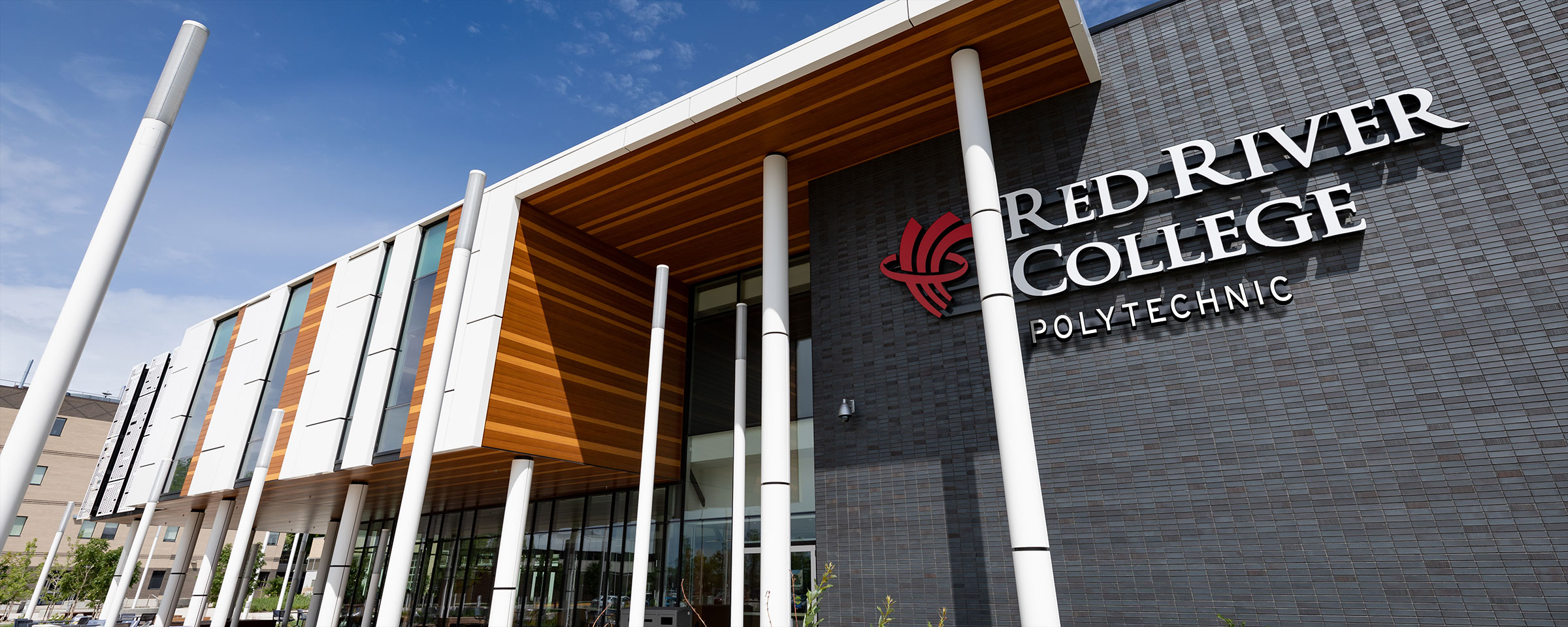Red River College shares bold plans to continue advancing Indigenous education in Manitoba
Winnipeg, MB – Red River College announced new and enhanced programs, and more student supports for Indigenous learners – all part of the College’s strategic plan to grow its Indigenous student population and chart a bold, new path forward for Indigenous Education.
“Red River College is proud to be a key signatory to the Manitoba Collaborative Indigenous Education Blueprint, and we are fully committed to providing the student-centered and culturally relevant supports necessary to help aspiring students successfully transition from community to classroom to career,” said Rebecca Chartrand, RRC Executive Director, Indigenous Strategy.
“Over the last year, we have been working to create better access to programs, new training opportunities, and more pathways to post-secondary education for our Indigenous learners. We have taken important steps forward as a College community to grow and provide our students with the wrap-around supports and services they need to succeed.”
This fall, the College will launch five new programs for Indigenous learners:
- ACCESS Health Pathway Program
- ACCESS Engineering Pathway Program
- Social Enterprise Diploma Program
- Indigenous Languages Certificate Program
- Indigenous Culinary Skills Certificate
The ACCESS programs provide learners with preparatory, exploratory and transitional experience, while the remaining three programs aim to grow Indigenous representation within these sectors. The culinary program for example, will provide courses aimed at developing fundamental culinary skills, knowledge and basic business skills. It will also include a cultural component and land based curriculum. The Indigenous Social Enterprise Diploma will focus on the principles of economic reconciliation and how this relates to the Canadian social economy. It will give students the tools they need to solve programs and address challenges in our urban and rural communities.
The College also worked very closely in consultation with internal and community stakeholders to create a new internal infrastructure that reflects the growth of Indigenous Education at RRC, and is more agile and responsive to the needs of learners. This has resulted in the development of 12 new positions, including two Navigators, Academic and Enrollment Coaches, a Transition to Employment Coach, and a Truth and Reconciliation and Community Engagement Manager.
“Everything we do as a College is ultimately about the success of our students. As Manitoba’s largest institute of applied learning, we are taking the lead to create more pathways to post-secondary education, deliver innovative and relevant programming, and ultimately, increase graduation rates among Indigenous students,” said Paul Vogt, RRC President and CEO.
These new programs and supports for Indigenous students build on the many positive initiatives and milestones Red River College has celebrated in the last year, including:
- Opening the College’s first Sweat Lodge at the Notre Dame Campus.
- Opening a new Indigenous Student Support Centre at The Roblin Centre to better support Indigenous learners pursing studies at the Exchange District Campus.
- Creating two new Anishinaabemowin language courses designed to support the growth of Indigenous language revitalization in Manitoba’s schools and advance reconciliation efforts in our province.
- Taking training outside of the traditional classroom and offering two new skilled trades community-based training programs to students in Lake Manitoba First Nation and Sagkeeng First Nation.
- Redeveloping and expanding our ACCESS programs to better meet the needs of students, and to provide opportunities to enroll in a wider range of program offerings including new streams in Health and Engineering.
